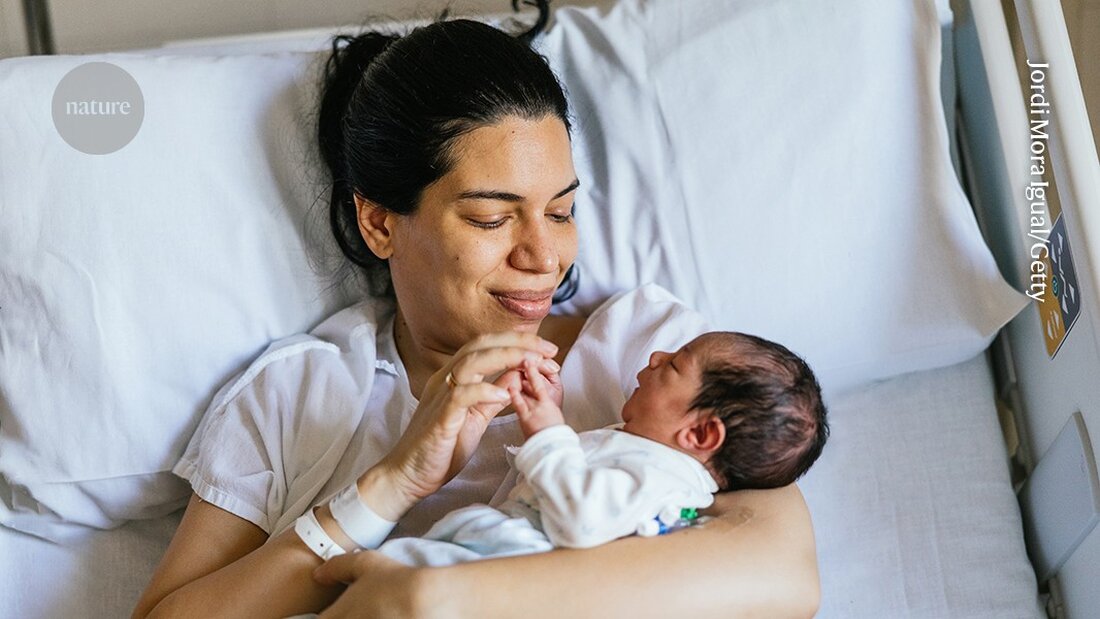Stool milkshake improves the microbiome of cesarean babies
A clinical study shows that giving "poo milkshakes" to babies born via cesarean section could improve their microbiome.

Stool milkshake improves the microbiome of cesarean babies
A recent clinical study shows that feeding newborns born by cesarean section milk that contains traces of the mother's stool introduces positive microbes into the baby's intestines. This approach could one day help prevent illnesses in childhood and beyond.
The study that last week first results during IDWeek, presented to a meeting of infectious disease specialists and epidemiologists in Los Angeles, California, is the first randomized controlled trial to test the “stool milkshake” concept.
The preliminary results confirm the researchers' hypothesis that a small fecal transplant is enough to have a positive effect on the infant's microbiome, explains Otto Helve, director of the Department of Public Health at the Finnish Institute for Health and Welfare in Helsinki, Finland, and the study's principal investigator.
Inherited microbes
Some studies show that babies born by cesarean section have a higher risk of asthma, inflammation of the digestive system and other diseases associated with a dysfunctional immune system. 1 Scientists believe these differences arise because cesarean-birth babies are not exposed to the microbes in their mothers' vaginas and intestines and do not colonize them quickly enough. Studies have even shown that babies born via cesarean section are more susceptible to hospital pathogens than babies born vaginally. 2
Experiments have tried to compensate for this deficiency by Babies born by cesarean section with microbes swabbed from their mother's vagina or these microbes were administered orally—a practice known as “vaginal seed transfer.” But this technique has had limited success because scientists say vaginally transmitted microbes cannot effectively colonize infants' intestines, says Yan Shao, a microbiome researcher at the Wellcome Sanger Institute in Hinxton, United Kingdom.
Helve and his colleagues were pioneers in testing whether fecal transplants could improve the health of babies' microbiomes. In their latest study, which recruited women scheduled for a cesarean section at Helsinki University Hospital, researchers mixed 3.5 milligrams of a mother's stool into milk and administered that mixture to the corresponding baby. This happened to 15 babies during their first feeding. Another 16 babies received a placebo.
An analysis of the babies' stool samples showed that the two groups had similar microbial diversity at birth. However, from the second day of life, there was a clear difference between the two groups, which lasted until 6 months of age, when babies begin eating solid food.
The study, which follows the babies during their first two years, is still ongoing, but the early data is consistent with what was found in a small pilot study 3 published in 2020 by the same team and had no placebo group. Researchers studied seven babies and found that the microbiomes of those who received a fecal transplant from the mother developed similarly to those of babies born vaginally.
“Given the success of the pilot study, it is not surprising that fecal transplantation from mothers would make a difference in the microbiome of cesarean babies,” says Shao. He points out that while the study is important, it does not directly compare the microbiome of treated cesarean babies with that of vaginally born infants - which would be necessary to prove that the technique is effective in restoring microbiomes compromised by a cesarean section.
“Don’t try it at home”
The researchers emphasize that this approach should not be tried at home. The participants in the study underwent extensive testing. “You have to make sure that the stool you give to the newborn does not contain any pathogens that could cause illness,” says Helve. Of 90 women initially enrolled, 54 were excluded due to pathogens or other screening errors. “Even if it sounds simple, it should be well controlled,” adds Helve.
Helve warns that this approach is unlikely to be suitable for every baby born as a result. In a large group of children, he says, you have enough statistical power to see that some diseases, such as asthma, are more common in those born by cesarean section. “But at the individual level the differences are very small.” His team is therefore investigating whether groups that are at high risk of certain diseases would benefit the most.
An important next step in this area, Shao says, would be to identify the specific maternal gut bacteria that are most likely to be transmitted to their babies' flagella. Shao asks: "If these species exist in human populations, wouldn't it be more effective and safer to give newborns a laboratory-made transplant that is guaranteed to be pathogen-free?"
-
Kristensen, K. & Henriksen, L.J. Allergy Clin. Immunol. 137, 587–590 (2016).
-
Shao, Y. et al. Nature 574, 117–121 (2019).
-
Korpela, K. et al. Cell 183, 324–334 (2020).

 Suche
Suche
 Mein Konto
Mein Konto
